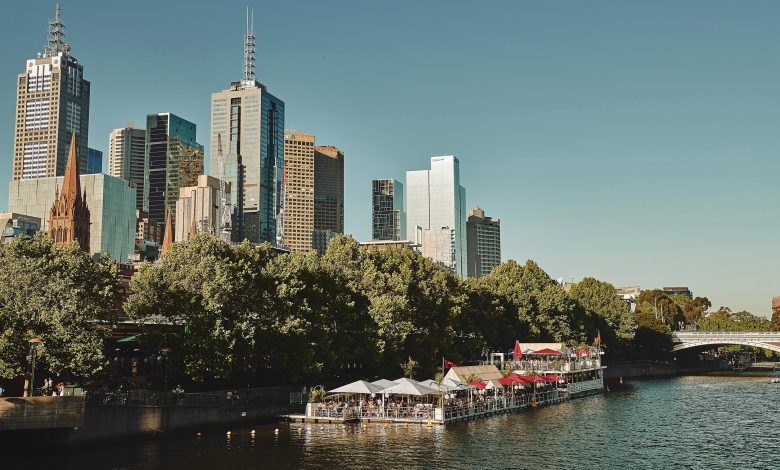5 Tips When Planning A Floating Business

Even though we now live in a world where people love to stay on their phones and drift into a digital community, people still crave new experiences. From trying a new restaurant to visiting an Instagram-worthy attraction, most people will be happy to do so.
After all, it’s the experiences that make life worthwhile. As a result, businesses are developing products and services that people can enjoy. A business’s aesthetic, ambience, and vibe attract people to try it out.
One unique business type that has existed for a long time is floating businesses. There are a lot of marina builder companies worldwide that build unique business layouts. On top of that, floating businesses are versatile. You can turn a floating pontoon into a restaurant, event space, and waterpark.
If you’re also looking to build a unique pursuit, a floating business is promising. But just like all businesses in the world, it’s not easy. You need to consider a lot of things and factors, too. If you’ve been thinking of starting a floating business, this post is for you.
To start, here are five tips when planning a floating business.
1. Choose a location that is safe and has good water flow.
A body of water is an essential component of a floating business. After all, isn’t it the factor that makes your business unique? And so, you need to choose a location that is safe and has good water flow.
It’s necessary to study the water flow in your preferred area. If you’re planning to build a floating business, safety should always be your top priority. Ideally, it’s better to construct a floating business on a lake or river than on the ocean.
Also, you have to check if the area is safe enough to construct a floating pontoon. You must study and assess the condition of the area before starting your next move.
2. Work with and consult a professional about your layout plan.
Since your business will be on the water 24/7, you need to design your business around that. Your layout and plans should be waterproof. Of course, it’s hard to implement and work on the design alone. You’ll need a group of experts to test, redesign, and improve your plan.
That’s why working with an engineer and architect who specialises in marina construction is a must. Collaborating with marina construction professionals will help your business threefold. They know how to incorporate safety designs while still delivering your planned aesthetic.
Wouldn’t it give you peace of mind that your business will be built by professionals? If you can’t find professionals who could help you, I suggest consulting a marina builder company instead. That way, you can be at ease that all of your ideas will be executed accordingly and safely.
3. Incorporate sustainability and environment-friendly measures.
Since your business is on the water, waste disposal can be a challenge. One of the issues regarding marine vessels and businesses is their waste disposal. A lot of news shows how much chemicals and waste are being disposed of in the ocean. If you’re planning to start a floating business, don’t be one of those companies that harm the ocean.
As you plan and work on the blueprint for your business, discuss how to incorporate sustainable designs. As early as possible, make it a priority to establish environment-friendly practices in your business.
Doing this will help you and your team develop methods and alternatives for waste disposal. Remember, the unique aspect of your business is the water experience. Respect the water by not turning it into your public trash.
4. Invest in a professional and well-trained team.
Whether you’re starting a floating restaurant or a floating attraction, having a professional and well-trained team is an asset. It’s already a given that your business is prone to risks. No matter how well-designed your property is, you should never be too complacent about risks.
Before opening your floating business, it’s best to look for people who can keep your business risk-free at all times. Investing in your manpower is a critical factor in business. Especially if you’re opening a recreational business on the water.
It would be nice to train your team months before your opening. Invest in their training, knowledge, and expertise. Keep in mind that your team’s skills are beneficial to your business. Also, your potential clients can easily spot if your team is well-trained or not. It will help your business build a good reputation and review once guests recognise how professional your team is.
5. Partner with a health facility and fire department agency.
If you haven’t thought of investing in a health clinic for your business, I suggest considering that. One of the top reasons that can cause people to not enjoy your business is vertigo and motion sickness. Unfortunately, a lot of people are sensitive to motion even though your business is stationary.
Aside from a health clinic, I also suggest partnering with a health facility. It would be nice if there’s a healthcare facility near your business. In case of an emergency, it will be easier to provide care and treatment if there’s a medical team on standby.
Also, partnering with a fire department agency is great, too. No one can tell when or how an accident happens. As a business owner, it should be your priority to keep your guests, employees, and business safe. It’s a power move to be always ready and prepared in case an unforeseen event happens.
Never overlook safety and sustainability in your floating business.
The five tips I shared are just some of the many that you should always keep in mind. Starting a floating business is exciting, unique, and fresh to the market. In your planning process, it can be easy to overlook safety and sustainability.
As you work on the creative and marketing aspect of your business, always raise the question of safety and sustainability. These two will benefit your business in the long run and save you from unnecessary stress and expenses.
About the author:
Bianca Banda is a writer for Walcon Marine Australia; a veteran in designing, manufacturing, supplying & installing quality floating marina systems for commercial and residential applications representing the Asia Pacific region.


